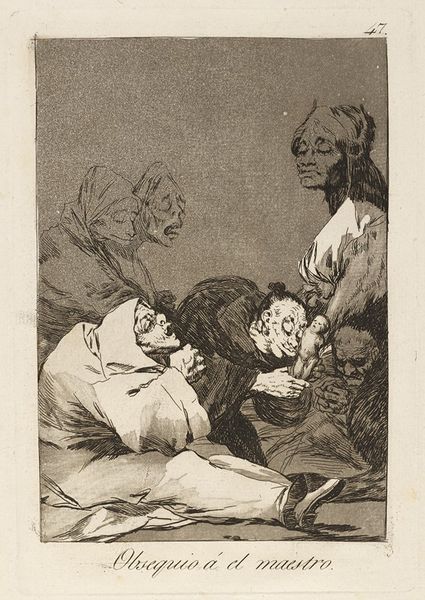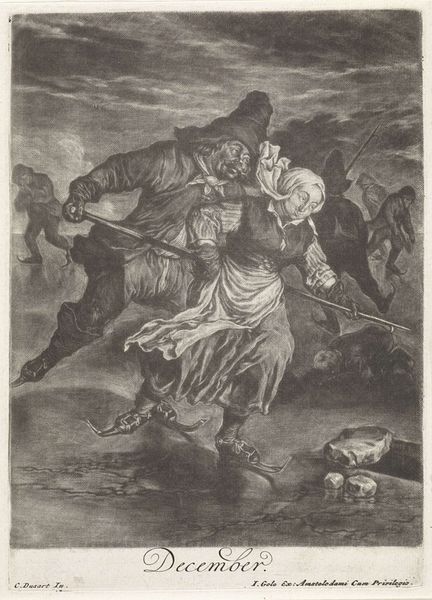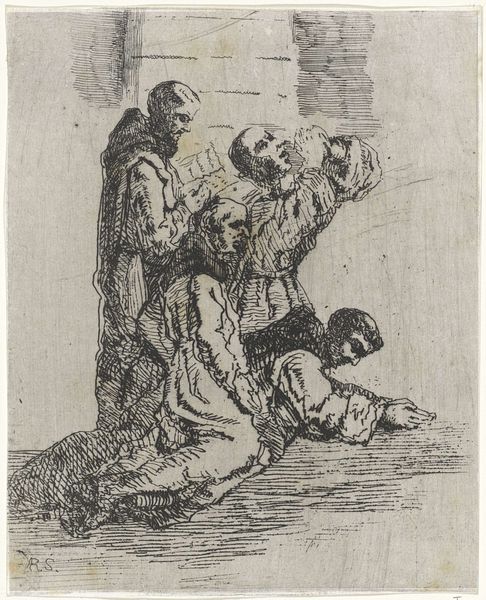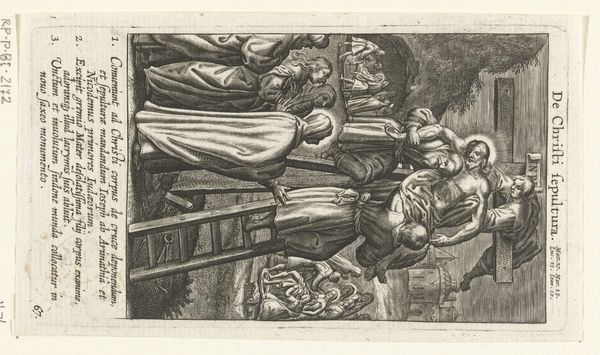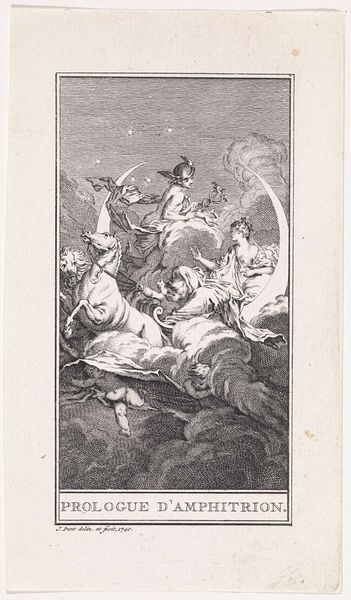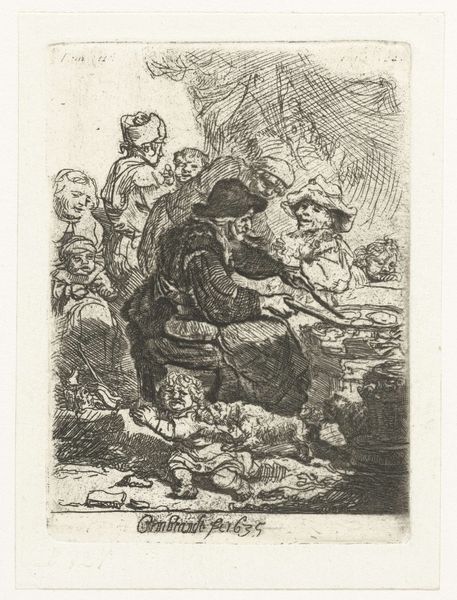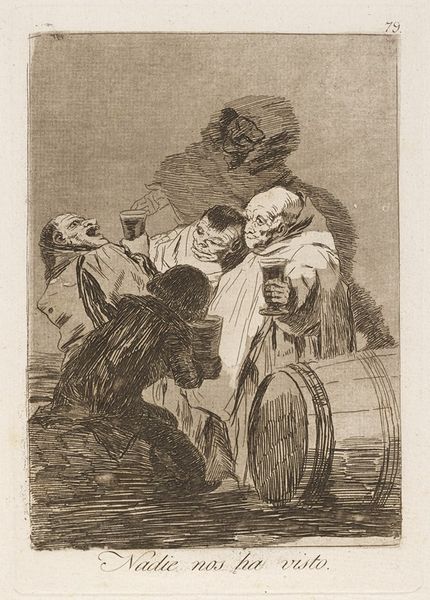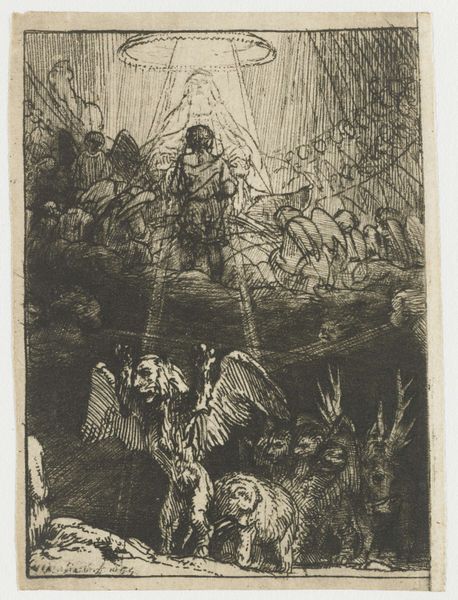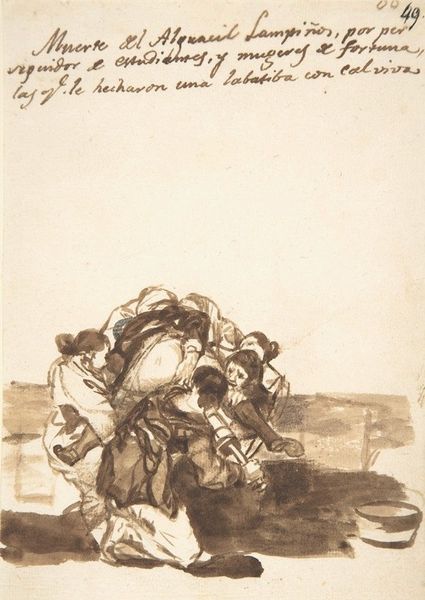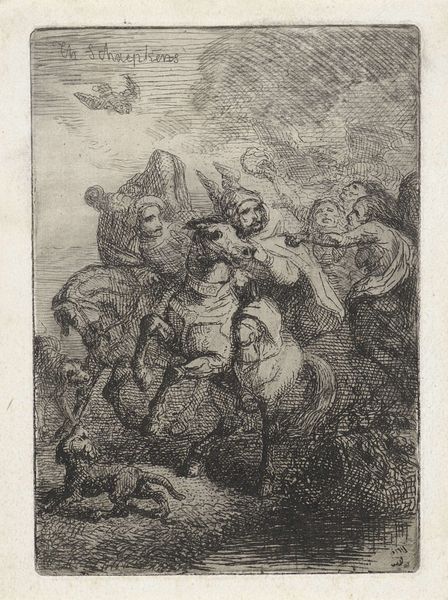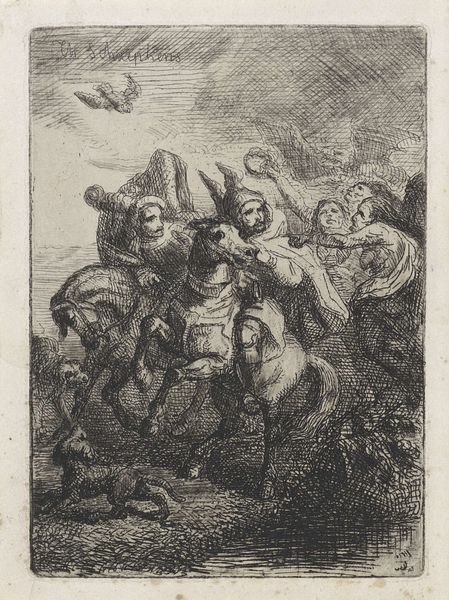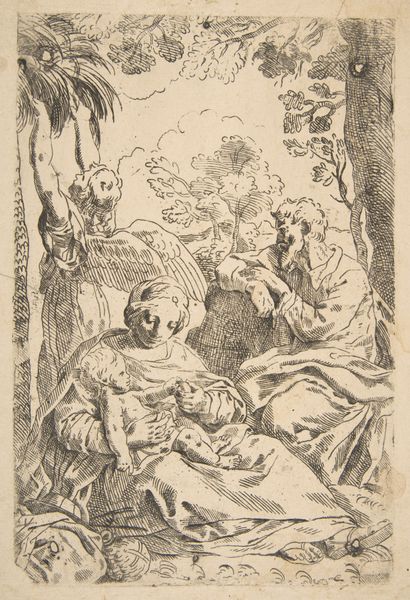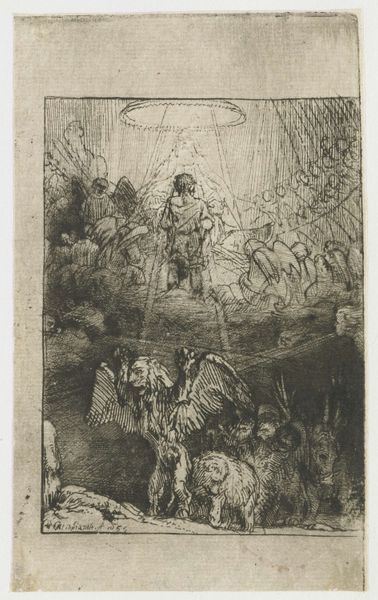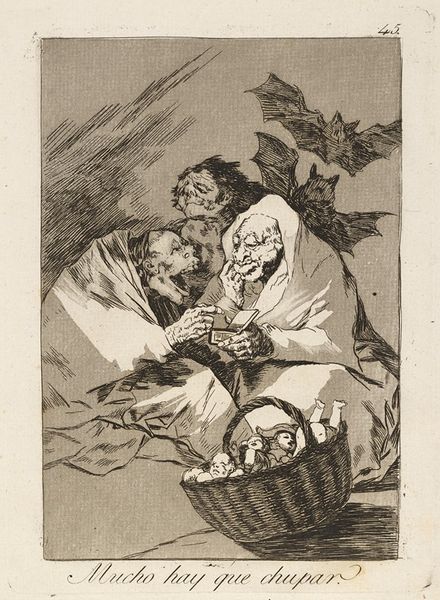
print, etching
#
pencil drawn
#
allegory
#
narrative-art
# print
#
etching
#
pencil sketch
#
figuration
#
romanticism
#
sketchbook drawing
#
pencil work
#
history-painting
Copyright: Public Domain: Artvee
This print, Correccion, was etched by Francisco Goya, likely in the early 1800’s. It uses the printmaking technique of etching, where a metal plate is coated in wax, and the design is scratched into the wax, exposing the metal. The plate is then submerged in acid, which bites into the exposed lines, creating grooves. To make the print, ink is forced into these grooves, and the plate is pressed onto paper. Look closely, and you can see the delicate network of lines that form the image. Goya often used etching to make social commentary. Here, you can observe the way the etched lines create a scene of grotesque figures, perhaps a critique of the corruption and hypocrisy in Spanish society at the time. The very act of etching, a process of controlled destruction, mirrors the decay Goya saw around him. It reminds us that materials and making are not neutral; they can be powerful tools for understanding and challenging the world.
Comments
No comments
Be the first to comment and join the conversation on the ultimate creative platform.
